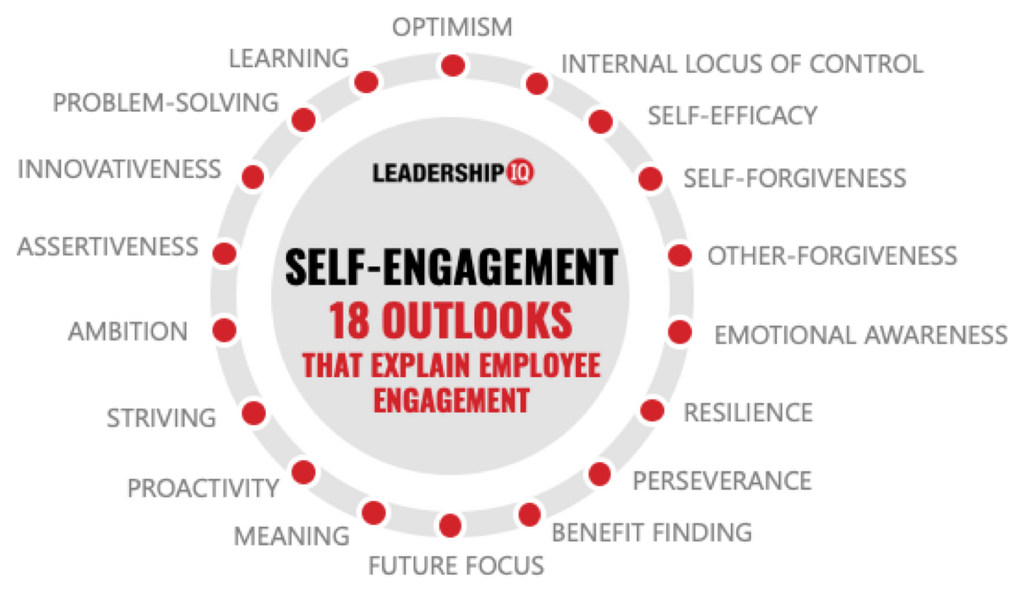These 18 Outlooks Explain Why Some Employees Are Happy At Work (And Others Are Miserable)
Why are some employees so happy at work (and inspired, motivated, and engaged)? And why are others unhappy, disengaged, and negative?
The research is clear: There are certain outlooks (aka ways of looking at the world) that can drastically impact how we feel at work. [Also check out our study Employee Engagement Is Less Dependent On Managers Than You Think]
For example, people with high levels of optimism or resilience or proactivity tend to be significantly happier, more fulfilled and engaged at work.
Leadership IQ’s research has discovered 18 Outlooks that have been shown to immediately increase our positive feelings at work.

Here are brief descriptions of these 18 Outlooks:
OPTIMISM
People high in optimism expect that they’re going to experience positive and favorable outcomes.
INTERNAL LOCUS OF CONTROL
People with a high internal locus of control believe that they control their own success or failure; that success or failure is not the result of chance or fate.
SELF-EFFICACY
People high in self-efficacy are confident in their ability to succeed and meet the challenges ahead of them.
SELF-FORGIVENESS
People high in self-forgiveness evidence the ability to forgive themselves for mistakes
OTHER-FORGIVENESS
People high in other-forgiveness change their negative thoughts, feelings, and behaviors about transgressors to at least neutral and perhaps positive.
EMOTIONAL AWARENESS
People high in emotional awareness are able to accurately observe, correctively interpret and correctly predict why and how others will act and react.
RESILIENCE
People high in resilience are better able to bounce back quickly from failure, adversity, tragedy, stress, relationship problems, health issues, and more.
PERSEVERANCE
People high in perseverance continue to work hard and pursue their goals regardless of the roadblocks and obstacles that get in their way.
BENEFIT FINDING
People high in benefit finding derive positive growth from adversity or tough times.
FUTURE FOCUS
People high in future focus are thinking about, and anticipating, the future (of their career, their company and even their industry).
MEANING
People high in meaning find their work interesting and important.
PROACTIVITY
People high in proactivity are generally self-starting and act before it’s demanded of them (as opposed to waiting for a directive).
STRIVING
People high in striving reach for goals that are bolder and more audacious than most.
AMBITION
People high in ambition are more likely to experience bigger achievements and love being challenged to extend the range of their abilities.
ASSERTIVENESS
People high in assertiveness are able to clearly express their needs, views, and boundaries.
INNOVATIVENESS
People high in innovativeness are creative and unconventional thinkers, and are often able to solve even seemingly intractable problems.
PROBLEM-SOLVING
People high in problem-solving are able to engage in cognitive problem solving strategies, like planning, analysis and critical self-reflection.
LEARNING
People high in learning are constantly growing, intellectually and professionally.








